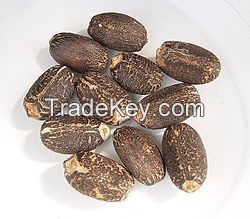
FOB Price
Get Latest Price250 ~ 350 / Ton
|Minimum Order
Place of Origin:
-
Price for Minimum Order:
Minimum Order Quantity:
2 Ton
Packaging Detail:
As a Customers' Requirement
Delivery Time:
10 to 20 days
Supplying Ability:
10000 Ton per Month
Payment Type:
T/T, Western Union, Money Gram, PayPal
Canada
Jatropha seeds are the seeds of the Jatropha curcas plant, a tropical and subtropical perennial shrub or small tree native to Central America and Mexico. Here are some key points about jatropha seeds:
Appearance: Jatropha seeds are small, dark brown seeds that are approximately 2 to 3 centimeters (0.8 to 1.2 inches) in length. Each seed is contained within a hard, woody shell or husk.
Composition: Jatropha seeds are rich in oil, which accounts for about *0% to *0% of their weight. The oil extracted from jatropha seeds is known as jatropha oil or Jatropha curcas oil. Jatropha oil is a non-edible vegetable oil that is commonly used for industrial purposes, particularly as a feedstock for biodiesel production.
Biodiesel Production: Jatropha oil is considered a promising feedstock for biodiesel production due to its high oil content, fast growth rate, and ability to grow in marginal lands with low water and nutrient availability. The oil extracted from jatropha seeds can be refined and processed to produce biodiesel, a renewable and environmentally friendly alternative to fossil fuels.
Non-edible: It\'s important to note that jatropha seeds and the oil extracted from them are not suitable for human or animal consumption due to their toxic and purgative properties. Jatropha seeds contain toxic compounds such as phorbol esters and curcin, which can cause irritation, inflammation, and gastrointestinal disturbances if ingested.
Cultivation: Jatropha curcas is cultivated primarily for its oil-producing seeds. It is a hardy and drought-resistant plant that can thrive in various climatic conditions, including arid and semi-arid regions. Jatropha plants are grown in plantations or as hedges and can produce seeds within two to five years of planting.
Environmental Impact: While jatropha has been promoted as a sustainable biofuel crop, concerns have been raised about its potential environmental impacts, particularly regarding land use change, biodiversity loss, and competition with food crops for land and resources. The sustainability of jatropha cultivation depends on factors such as land management practices, cultivation methods, and local socio-economic conditions.
